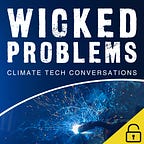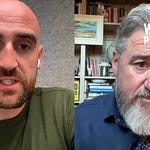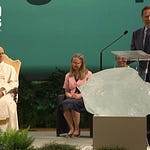Welcome back to Wicked Problems - Climate Tech Conversations. As the SEC votes today on new climate risk disclosure requirements for US public companies, here’s our conversation about the evolving landscape of climate disclosures with Ryan Skinner, Head of Research for Net Zero and Climate Risk at Verdantix — a leading market research firm advising on sustainability, operations, risk, and facilities management. Join us as we explore the complexities and challenges of climate risk, the role of financial disclosures in driving the climate transition, and the upcoming regulatory changes that could reshape corporate reporting.
Key Takeaways
Financing the Climate Transition: Skinner discusses the critical role of transparent and comparable financial disclosures in mobilizing the billions, if not trillions, of dollars required for the climate transition. The conversation highlights the pivotal efforts, such as those led by Michael Bloomberg with the Task Force for Climate-related Financial Disclosures (TCFD), aimed at clarifying investor needs.
Scope 3 Emissions Challenges: One of the focal points of our discussion is the contentious issue of Scope 3 emissions reporting. It’s unclear whether Scope 3 will be included in today’s final SEC rules. We talk through the controversy.
The Uncertainty of SEC Rule Implementation: As we delve into the specifics of the upcoming SEC disclosure rule, Skinner sheds light on the uncertainty and skepticism about its finalization and implementation. The conversation considers the political and practical challenges of introducing such regulations, especially in an election year.
Climate Skills Gap: A surprising insight from our discussion is the growing climate skills gap in the job market. Skinner points out the increasing demand for professionals with technical climate expertise, which far outstrips the current supply, underscoring the urgency of addressing this imbalance to effectively tackle climate risks.
Optimism Amidst Challenges: Despite the hurdles and uncertainties facing climate action and disclosures, Skinner expresses a cautious optimism for the future. He shares inspiring examples, such as recent developments in Australia, that demonstrate the potential for positive change through political and corporate commitment to addressing climate risks.
Recommended Resources
Insights from Tariq Fancy on the limitations of ESG investing
Connect with Us
…or on your favourite podcast platform
Follow us on LinkedIn or BlueSky for updates and discussions on the latest in climate tech and renewable energy.
Thanks
We appreciate you tuning in. If you got something out of it, feel free to share.













